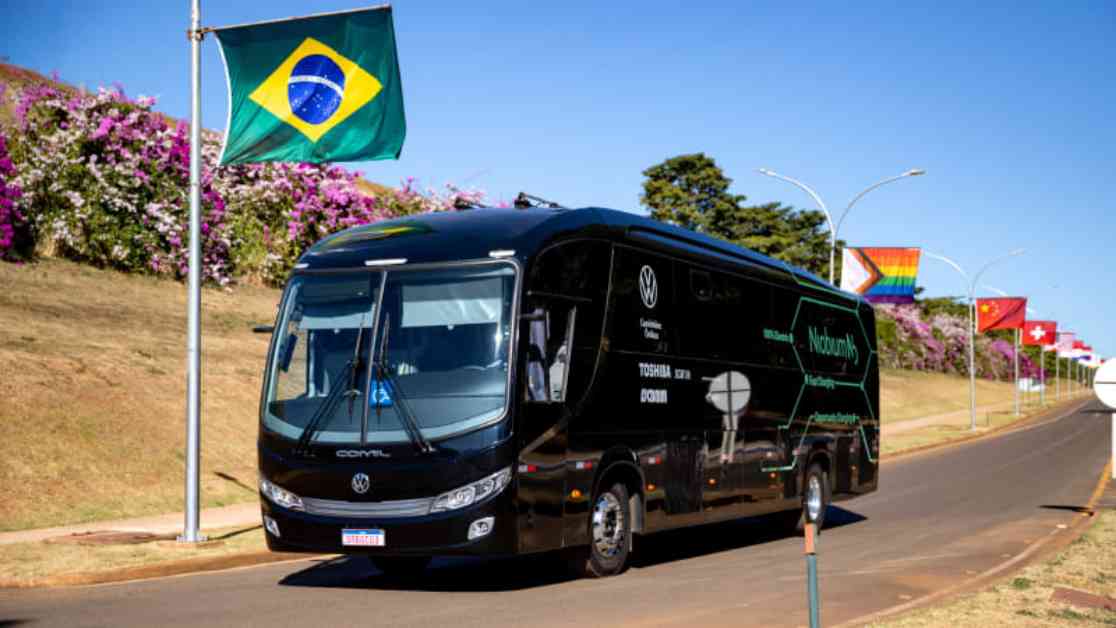Brazilian mining company CBMM recently announced a groundbreaking innovation in the electric vehicle industry. They have developed a niobium-based battery that promises significantly faster charging times compared to other batteries currently on the market. This new battery technology, developed in partnership with Toshiba, combines lithium and niobium to create an efficient and high-performing power source.
CBMM, known for its niobium products used in steelmaking, is now venturing into the battery sector with hopes of diversifying its revenue streams. The company aims to increase its battery unit revenue to $100 million by 2026, a significant jump from its current figures. This move signifies CBMM’s commitment to innovation and sustainability in the rapidly evolving electric vehicle market.
The niobium battery prototype was unveiled at an event held at CBMM’s Araxa plant, showcasing its impressive capabilities. According to Rodrigo Amado, the executive commercial manager at CBMM’s battery division, the new battery can be fully recharged in just 10 minutes when used in an electric bus. This is a remarkable improvement compared to the three to eight hours typically required for conventional batteries to reach full charge.
To test the viability of the niobium battery, CBMM has partnered with Volkswagen Caminhoes e Onibus, a Brazilian subsidiary of the Volkswagen truck division Traton. The battery will be installed in an electric bus with a range of 60 kilometers (37.3 miles) and will be evaluated for its performance and durability. If successful, CBMM plans to introduce the niobium battery to the market as early as next year, offering consumers a more efficient and long-lasting alternative to traditional batteries.
One of the key advantages of the niobium battery is its extended lifespan, which is estimated to be up to three times longer than that of conventional batteries. This is made possible by the innovative technology used in the battery, which allows it to operate efficiently at lower temperatures. As a result, electric vehicles equipped with niobium batteries could potentially enjoy increased longevity and reduced maintenance costs, making them a more attractive option for consumers and businesses alike.
The collaboration between CBMM, Toshiba, and Volkswagen represents a significant step forward in the development of sustainable energy solutions for the transportation sector. By leveraging the unique properties of niobium, these companies have created a battery technology that not only offers faster charging times but also improved durability and performance. As the demand for electric vehicles continues to rise worldwide, innovations like the niobium battery could play a crucial role in shaping the future of transportation and reducing our reliance on fossil fuels.










